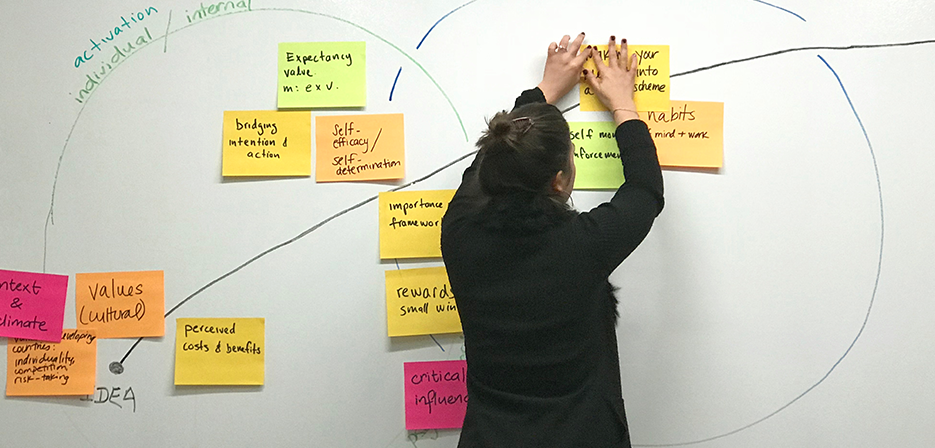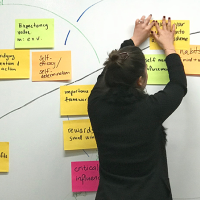

Idea Into Action
A quest to translate ideas (principles, plans, good intentions, etc.) into action on the ground.
The Idea into Action (or I2A) project is a multi-year investigation into how we might translate ideas (principles, plans, good intentions, etc.) into action on the ground, particularly in contexts where ideas should translate into action readily enough with a bit of guidance, attention, and resolve, but they often don't. In close collaboration with Independent Schools Victoria, the I2A team has delved into the research literature from multiple academic disciplines and professional fields to understand how the challenge of idea into action has been studied and engaged, and designed tools and practices that support school leaders, teachers, and students to bring good ideas into action.
To date, the I2A project has worked on four key fronts:
- 1. Ecologies of Change leadership model and toolkit. The model and toolkit offers guidance for school leaders and leadership teams as they implement large-scale complex initiatives in their school contexts. They encourage leaders to recognize the complex dynamics of change, including surprising pockets of innovation and the energy of early adopters, but also the reality of later adopters and the tendency of innovations to slow down and slack off after initial momentum.
- 2. Reach Learning Approach. This approach is designed to transform the teaching of subject matter in ways that deepen understanding, foster thinking and learning skills and dispositions, and promote foster transfer of learning to students' lives. It calls for students to take on three different roles at various points in learning a content area - Explorer, Investigator, and Innovator. These roles develop in students powerful and flexible mindsets that they can apply widely in school and beyond.
- 3. Personalizing Instructional Change model and toolkit. This front supports teachers to exercise thoughtful agency and personalize innovations in ways reflecting their own contexts and enthusiasms. The model and toolkit recognize that teachers are always busy and some will respond to a prospective innovation as early adopters while others will find themselves later or even reluctant adopters.
- 4. Resilient Design. This front responds to the recurring problem of fragility, from the institutional to the personal, in the face of shifting conditions. Resilient design equips change agents and developers to expect and manage evolving circumstances, maintaining the innovation or restoring it nimbly or adapting it to emerging conditions.



-
-
-
-
-
-
Support PZ's Reach